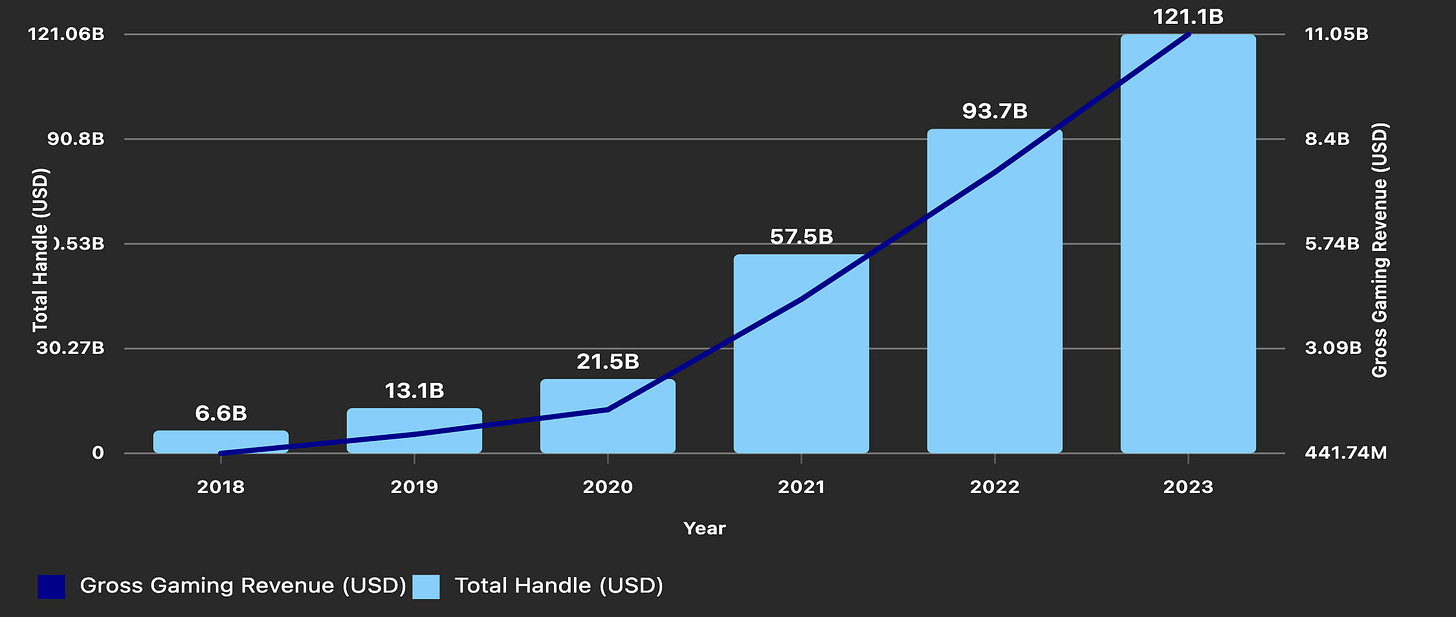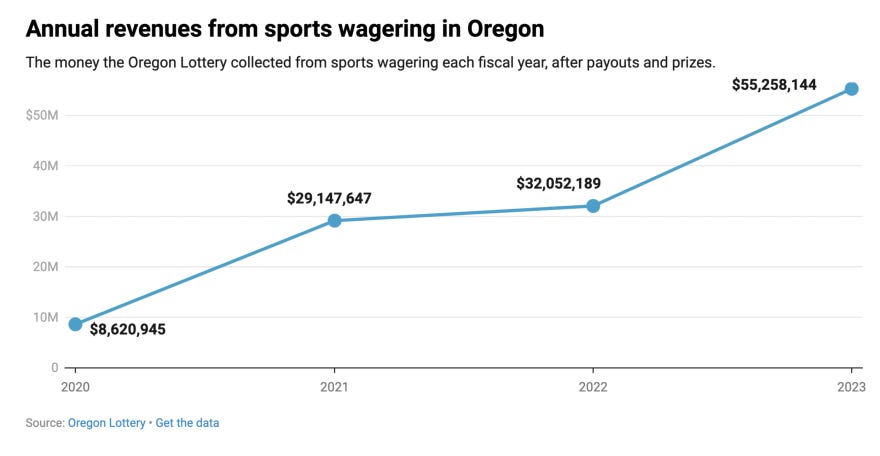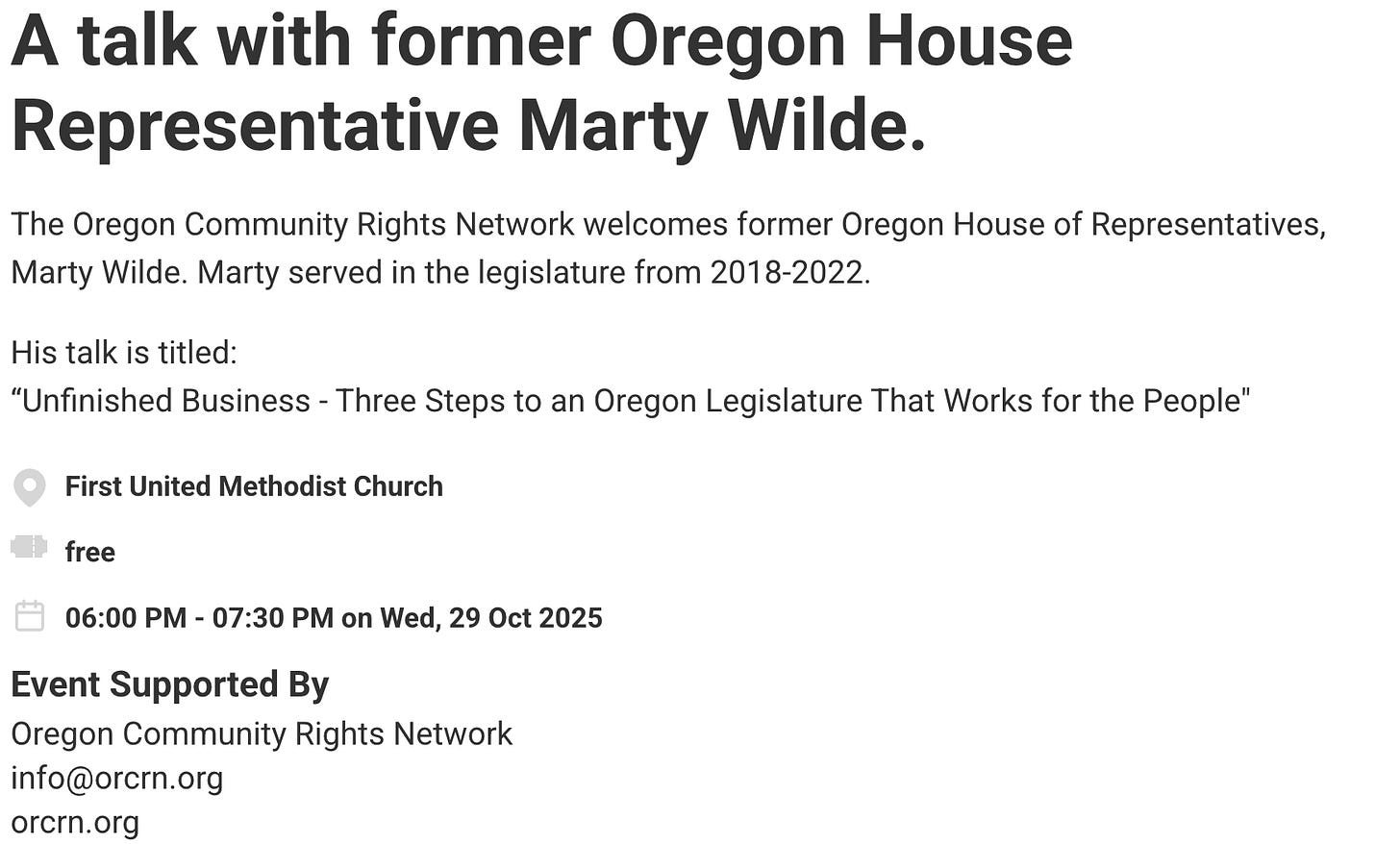The Fix Is In
Prop Bets and the New Wild West of Sports Gambling
Warren Buffett once said, “If you’ve been in the game 30 minutes and don’t know who the patsy is, you’re the patsy.” Sports gambling has exploded across America, becoming a $150-billion-a-year industry, marketed as harmless entertainment. But gambling opens doors not only to fun but to fraud. Just how deeply gambling has infiltrated professional sports? The recent arrests of Portland Trail Blazers coach Chauncey Billups for fixing games in Las Vegas and Miami Heat guard Terry Rozier for providing mafiosos with inside information underscore give us an idea. (Of course, people accused of a crime remain innocent until proven guilty, but these arrests are alarming.) Fixed games, increasing negative impacts on college sports, and problem gambling are underappreciated consequences that we need to address.
The Growth of Gambling
Thirty years ago, sports betting was largely confined to Las Vegas sportsbooks and shady backroom deals. In those settings, the total ‘handle’—the amount bet—on sports was estimated to be $2.5–$3 billion. Prior to the legalization of sports betting in 2018, it remained relatively low, with a total handle of $6.6 billion. Today, sports betting is everywhere—on phones, in stadiums, even in official broadcasts. And the numbers are staggering: the total amount wagered on sports has grown to almost $150 billion—an almost 5000% increase over the past three decades, fueled by legalization in dozens of states and aggressive marketing campaigns. Gambling companies have turned fandom into a financial transaction, and fans are buying in.
Mobile betting is the engine behind this boom. In states where both retail and online options exist, mobile apps account for 80–90% of wagers. Globally, nearly 78% of online bets are placed on mobile devices, and among younger bettors, that figure tops 85%. In the U.S., sports betting apps generated $13.7 billion in revenue last year—a 25% jump from 2023. Convenience isn’t just a feature; it’s the foundation of the industry’s meteoric rise.
The rise in mobile gambling presents a particular problem, as ease of access contributes heavily to problem gambling. Problem gambling self-reporting has increased from 1.5–2% prior to 2018, when sports betting was legalized, to an estimated 8% in 2024. In addition to the financial impact, problem gamblers have a suicide risk 15 times higher than the general population.
Prop Bets: A Cheater’s Playground
If traditional bets are about who wins or loses, prop bets are about everything else—how many points a player scores, how many rebounds they grab, even whether the first pitch of a game is a strike. These bets are wildly popular because they add drama to every moment of a game. But they also create a perfect setting for manipulation. Unlike team outcomes, many prop bets hinge on the actions of a single player. Miss a free throw intentionally? That’s a payday for someone. And the trend isn’t slowing down—prop bets are drawing new demographics, including a surge in women bettors who see them as more engaging than traditional wagers.
What was once viewed as an exclusively male domain has also become more egalitarian in its harms. Women’s participation in sports betting is rising fast: in 2022, 3.2 million American women joined sportsbooks—a 45% increase from the previous year. Prop bets are especially popular among these new bettors because they feel more engaging and accessible than traditional wagers. In women’s sports, the effect is dramatic. Caitlin Clark’s games attracted five times more prop bets than any other player, prompting FanDuel to launch a dedicated “Caitlin Clark betting hub.” Sportsbooks are expanding prop markets for WNBA and NCAA women’s basketball to meet this demand.
Athletes are also facing harassment as their sports increase in popularity. In one NCAA study of 4,000 text messages to athletes, 11% were related to sports betting, coming in third after the perennial problems of sexual and sexist texts. With 58% of 18–23-year-olds reporting at least one sports bet in a 2023 NCAA study, the negative aspects of sports betting are rising along with the favorable attention to historically less popular sports.
Transparency as a Solution
Transparency is key to protecting both bettors and sports. Imagine a system that color-codes bets by risk: green for bets unlikely to be manipulated, red for those easily influenced by a single player. Pair that with real-time reporting of betting data to an active regulator, and we have a fighting chance to detect fraud before it spirals. These steps won’t eliminate cheating, but they’ll make it harder for bad actors to operate in the shadows.
Unfortunately, the significant contribution of gambling revenue to state budgets complicates attempts to regulate the problem. For instance, in 2025, the Oregon Lottery passed a total $3 billion in total sports betting. This resulted in revenues of over $161 million to the state budget. Total annual sports bets through the Lottery are expected to approach $1 billion annually by the end of 2025. These revenues support a lottery bond package that has become part of the “Christmas Tree Bill” that funds projects in legislators’ home districts and helps them get through the contentious end--of-session bargaining. Legislators are unlikely to risk the golden-egg-laying Lottery goose until the public insists upon it.
The Indifference Problem
Manipulating sports outcomes and harassing players remain criminal acts, but it is ones that are rarely caught or prosecuted. The biggest obstacle isn’t technology—it’s apathy. Many people still view gambling as harmless entertainment or a victimless crime. That perception breeds indifference among law enforcement and regulators, creating a Wild West where oversight is minimal and temptation is everywhere. Until the public demands accountability, the game will remain rigged—and the patsy will always be the fan.
You can find your state legislator’s e-mail at https://www.oregonlegislature.gov/FindYourLegislator/districts-initial.html. I encourage you to write them and push them to put the public first in gambling regulation.
Recent Sports Gambling Scandals
2019 – Josh Shaw (NFL)
The Arizona Cardinals cornerback was suspended indefinitely for betting on NFL games, including a parlay against his own team. He never played in the league again. [espn.com]
2022 – Calvin Ridley (NFL)
While on leave for mental health reasons, Ridley bet on NFL games and was suspended for the entire season. He was reinstated in 2023. [espn.com]
2023 – Ivan Toney (Premier League)
The Brentford striker admitted to 232 betting breaches, including bets against his own team. Diagnosed with a gambling addiction, he received an eight-month ban. [casinobeats.com]
2024 – Jontay Porter (NBA)
Banned for life after leaking health information and betting on games, including against his own team. The scandal was flagged by betting operators due to suspicious activity. [thehill.com]
2024 – Ippei Mizuhara (MLB)
Shohei Ohtani’s interpreter stole nearly $17 million from the star’s account to fund illegal gambling. He impersonated Ohtani and was sentenced to prison. [thehill.com]
2025 – FBI Probe: NBA Mafia-Linked Scandal
Over 30 people, including Chauncey Billups and Terry Rozier, were arrested for their roles in illegal betting and rigged poker games. The scandal revealed deep ties between organized crime and sports figures.
Shutdown Update
At the time of writing, the federal government continues, with no end in sight. However, for the first time last week, whispers of compromise started coming out in the press. With the President on the road to Asia this week, it’s unlikely we will have a resolution, but there’s hope for the following week, when the full impact of missed paychecks and benefit payments will start to hit.
Disclaimers
In writing my columns, I depend on the representations made in the press. Some of the facts may remain in dispute.
The views expressed herein are those of the author and not necessarily those of the Department of Navy, the Department of Defense, the University of Oregon, or any other entity with which the author is affiliated.
Keep Letters from a Recovering Politician Free
As always, the best thing you can do to support this column is to share it with people who might be interested. I do not have a paid plan because I want folks to be able to access it without worrying about money. If you’d like to leave me a tip to show your appreciation, you can click on the Buy Me a Coffee or PayPal button below.





Twenty bucks says Dodgers in six. 😉